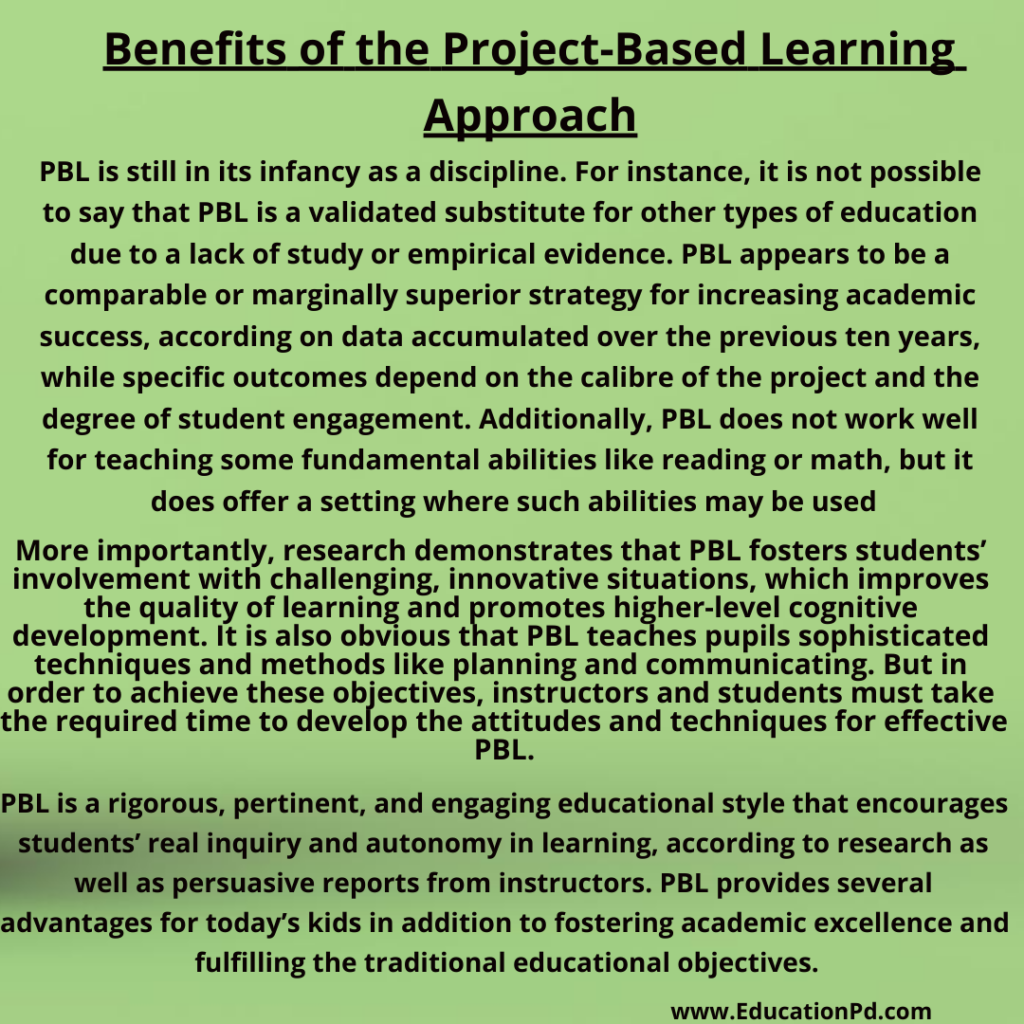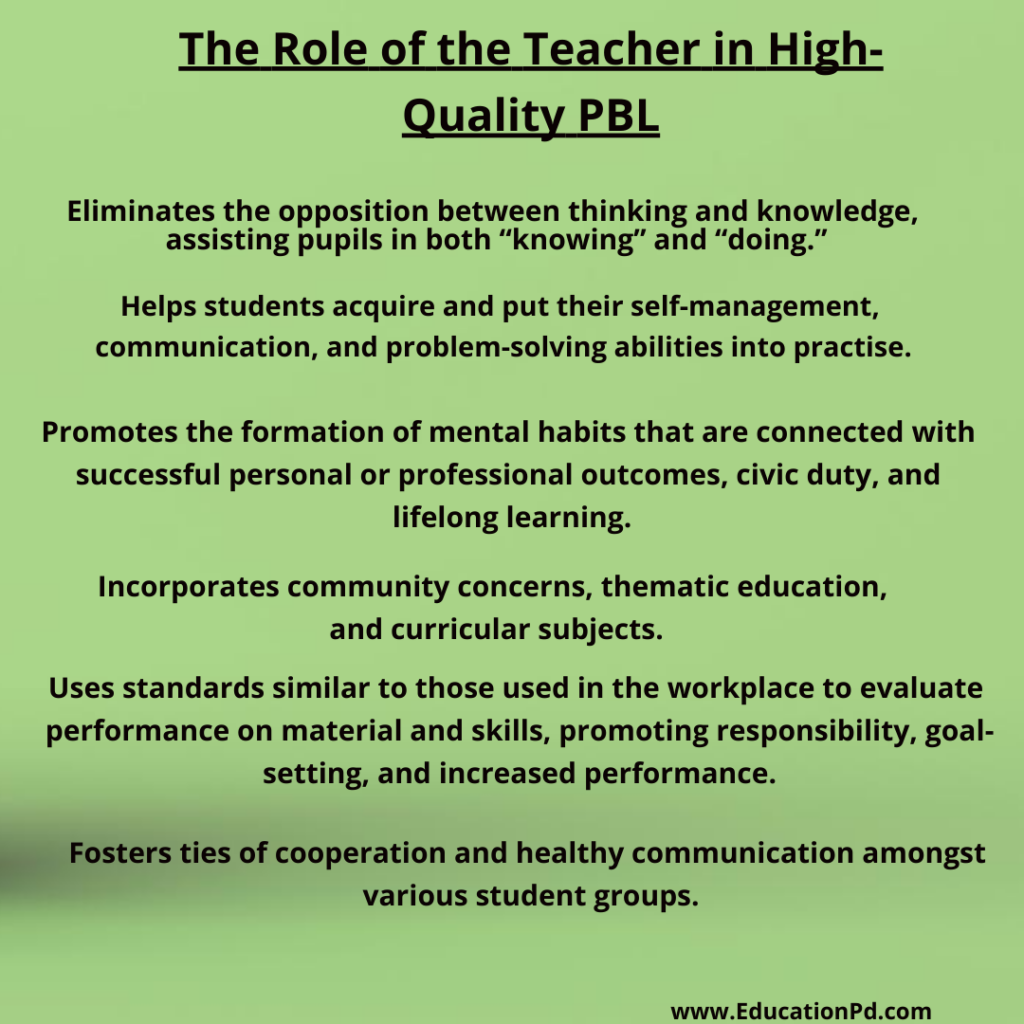Back to: Educational Technology in Education B.ed Notes, M.A Notes, IGNOU Notes
Benefits of the Project-Based Learning Approach
PBL is still in its infancy as a discipline. For instance, it is not possible to say that PBL is a validated substitute for other types of education due to a lack of study or empirical evidence. PBL appears to be a comparable or marginally superior strategy for increasing academic success, according on data accumulated over the previous ten years, while specific outcomes depend on the calibre of the project and the degree of student engagement. Additionally, PBL does not work well for teaching some fundamental abilities like reading or math, but it does offer a setting where such abilities may be used.
More importantly, research demonstrates that PBL fosters students’ involvement with challenging, innovative situations, which improves the quality of learning and promotes higher-level cognitive development. It is also obvious that PBL teaches pupils sophisticated techniques and methods like planning and communicating. But in order to achieve these objectives, instructors and students must take the required time to develop the attitudes and techniques for effective PBL.
PBL is a rigorous, pertinent, and engaging educational style that encourages students’ real inquiry and autonomy in learning, according to research as well as persuasive reports from instructors. PBL provides several advantages for today’s kids in addition to fostering academic excellence and fulfilling the traditional educational objectives.

The Role of the Teacher in High-Quality PBL
- Eliminates the opposition between thinking and knowledge, assisting pupils in both “knowing” and “doing.”
- Helps students acquire and put their self-management, communication, and problem-solving abilities into practise.
- Promotes the formation of mental habits that are connected with successful personal or professional outcomes, civic duty, and lifelong learning.
- Incorporates community concerns, thematic education, and curricular subjects.
- Uses standards similar to those used in the workplace to evaluate performance on material and skills, promoting responsibility, goal-setting, and increased performance.
- Fosters ties of cooperation and healthy communication amongst various student groups.
- Meets the requirements of students with different skill levels and learning preferences.
- Engages and inspires pupils who are disinterested or bored. PBL may be utilised effectively or ineffectively, just like any other teaching strategy.
At its finest, PBL may assist teachers in setting up high-performing classrooms where they and their students can develop a strong learning community that is focused on accomplishment, self-mastery, and community service. It enables you to concentrate on key concepts and important themes in your curriculum, design interesting and difficult classroom activities, and encourage student-directed learning.
